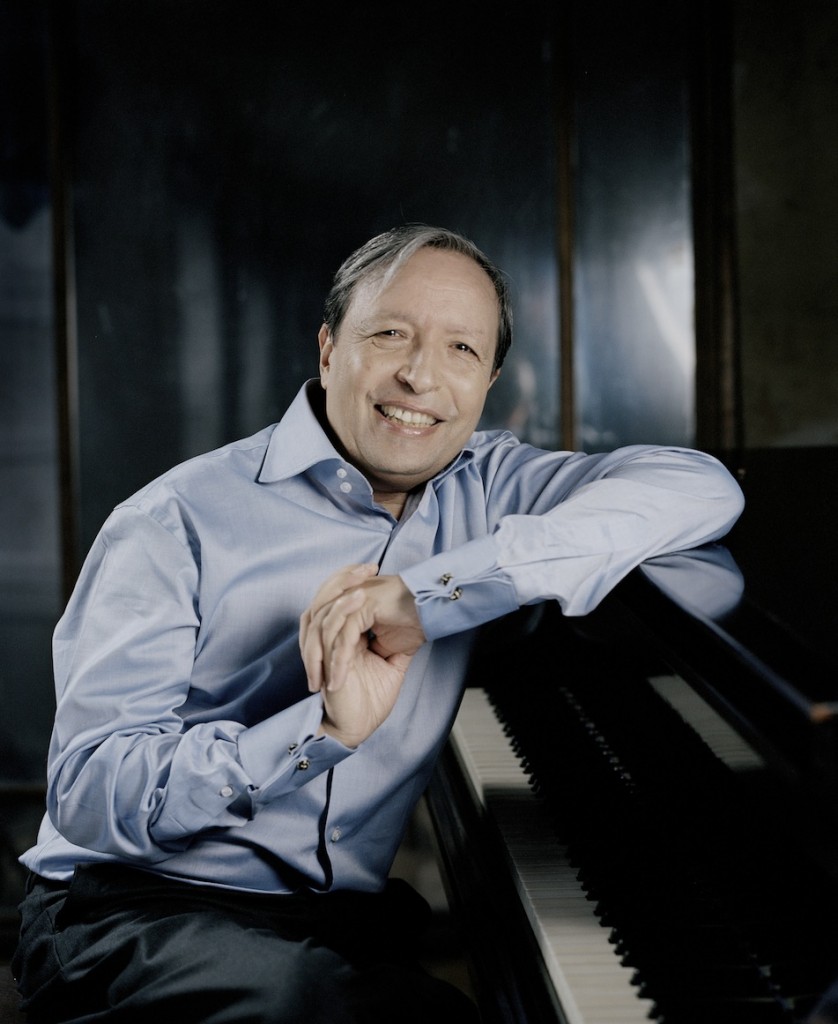New World Symphony marks a silver anniversary amid a packed Florida classical season
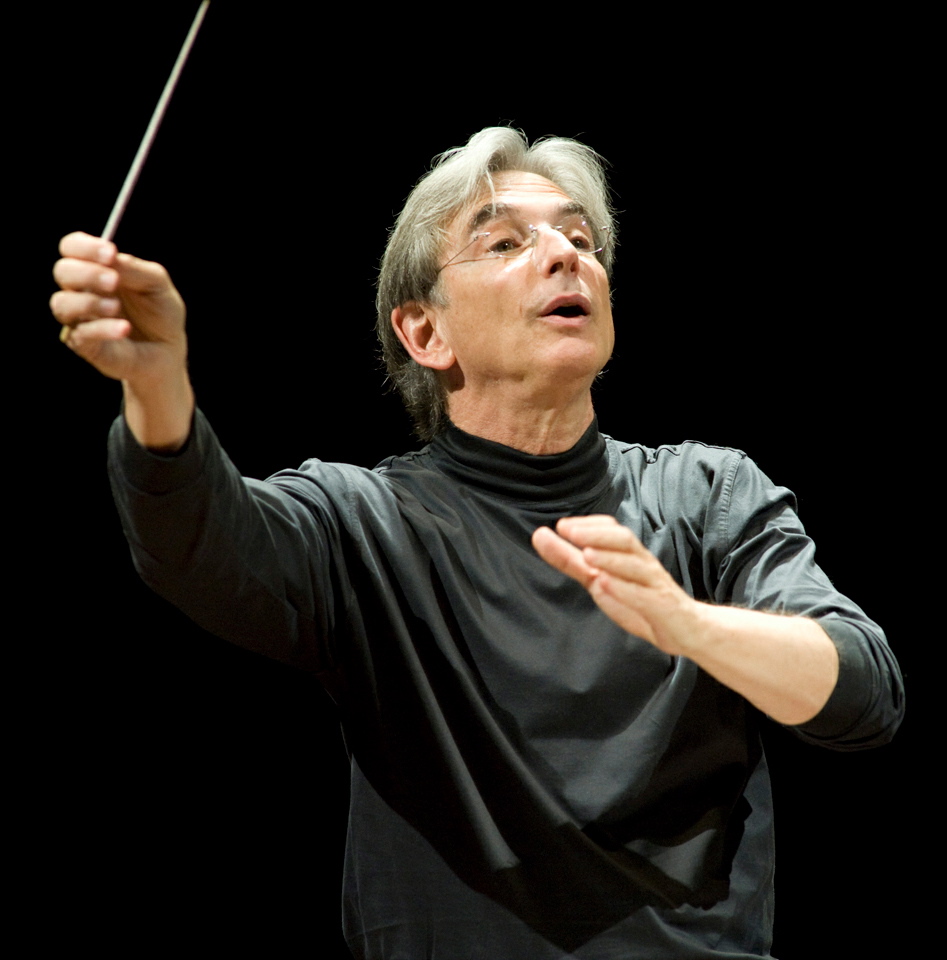
Michael Tilson Thomas and the New World Symphony will mark their 25th anniversary in the 2012-13 season.
A jam-packed 2012-2013 classical season will bring orchestras from Cuba and China to South Florida. There will be recitals by enough keyboard virtuosos to staff the faculties of Juilliard and Curtis. Leading orchestras, including those of Pittsburgh, Philadelphia, and, of course, Cleveland will perform. John Adams and other composers will come to South Florida to conduct their own works. And the season will bring the rare chance to hear German opera, amid the usual Traviatas and Bohèmes.
The season finds several major organizations going through leadership transitions, including Florida Grand Opera, the Master Chorale of South Florida and the Miami City Ballet. But from the wealth of offerings this year, it’s clear South Florida retains vigorous arts organizations and remains a popular stop for leading musicians. Here are some highlights:
New World Symphony
New World founder Michael Tilson Thomas has called his approach to classical music an attempt to connect past, present and future. That philosophy certainly comes through in the enormously varied programming of the orchestra’s 25th anniversary season (www.nws.edu). There will be a procession of guest conductors from classical music’s European heartland, visits from composers conducting their own works and performances of several repertoire classics.
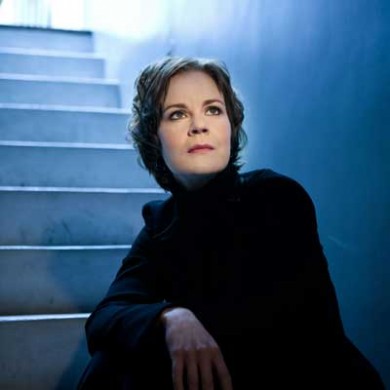
Susanna Mälkki will conduct the New World Symphony in the American premiere of Kaija Saariaho's Clarinet Concerto December 15 and 16.
Stéphane Denève, chief conductor of the Stuttgart Radio Symphony Orchestra, who has been mentioned as contender for the vacant Boston Symphony Orchestra podium, will conduct Honegger’s Symphony No. 3, Prokofiev’s Suite from Cinderella, and the Mendelssohn Violin Concerto with soloist Renaud Capuçon (Nov. 10-11). Susanna Mälkki, a Finnish contemporary music specialist, will conduct the U.S. premiere of Kaija Saariaho’s Clarinet Concerto with the Finnish clarinetist Kari Kriikku, (Dec. 15-16). Matthias Pintscher, who will succeed Mälkki as music director of France’s Ensemble InterContemporain next year, will conduct his own Reflections on Narcissus, and two works by contemporary German composers: the Symphony No. 8 by Hans Werner Henze, and Will Sound by Wolfgang Rihm (March 30). Marek Janowski, chief conductor of the Berlin Radio Symphony, Orchestra, will lead an all-Strauss program May 3 and then on May 4 conduct works by Strauss as well as Beethoven’s Fifth Symphony. Tilson Thomas will conduct several concerts, most notably a continuation of his Mahler cycle. This season will feature the composer’s Fourth Symphony, along with Brahms Violin Concerto with soloist Christian Tetzlaff (April 27-28).
Three concerts look especially interesting. Soloists from the Vienna Philharmonic will appear with the orchestra for a Second Viennese School concert including Berg’s Violin Concerto, Schoenberg’s Cello Concerto and Schoenberg’s Theme and Variations (Jan. 26). The orchestra will offer a concert entirely of Classical-era works, unusual programming amid the 19th and 20th century-dominated symphonic concerts of South Florida. For this concert, early music specialist Nicholas McGegan will conduct Haydn’s Symphony No. 30 and Symphony No. 103, and the American soprano Cyndia Sieden will sing Mozart’s Vorrei spiegarvi, oh Dio!, Exsultate, jubilate and opera arias to be announced (Oct. 27-28). And the renowned American composer John Adams, who has appeared several times with New World, will return to conduct his own Slonimsky’s Earbox and Absolute Jest, along with Elliott Carter’s Variations for Orchestra, and a yet-to-be-named world premiere (Dec. 1).
The orchestra will continue its experiments with alternative concert formats, which attempt to present classical music in a more approachable manner to today’s audiences. There will be several $2.50 mini-concerts lasting 30 minutes and repeated through the evening. There will be late-night Pulse concerts, taking place from 9:30 p.m. to 1:30 a.m., which will try to create a nightclub environment in hopes of appealing to younger listeners. There will also be what are called Journey concerts that attempt to delve more substantially into the work of a single composer or theme, with this season’s devoted to Mozart (Feb. 16-17).
Opera and ballet
Florida Grand Opera enters its first season under new general director Susan Danis, the well-regarded former executive director of Sarasota Opera. Since this is also the second season for music director Ramon Tebar, there has now been a complete change at the top for the region’s oldest opera company (www.fgo.org).
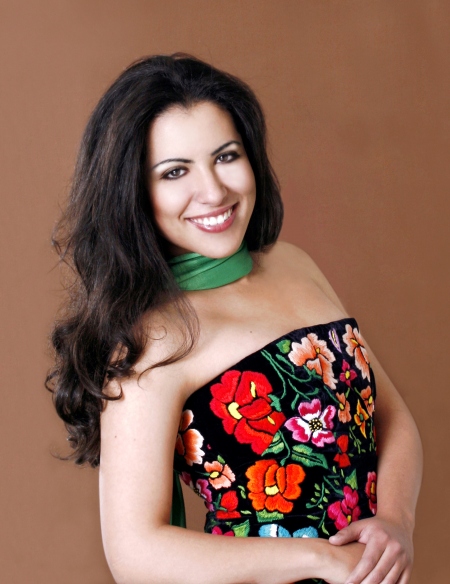
María Alejandres will sing the role of Violetta in Florida Grand Opera's production of Verdi's "La Traviata" in April and May.
Danis will have to wait until next season to make her mark on repertoire, which this season isn’t the freshest. The season opens with Puccini’s La Bohème with the American soprano Ailyn Pérez, a recent winner of the Richard Tucker Award who is getting leading roles at major houses (Nov. 17-Dec. 8). Also this season the company will offer Mozart’s Magic Flute (Jan. 26-Feb. 23), Bellini’s La Sonnambula (Feb. 9-17) and Verdi’s La Traviata, with the soprano María Alejandres, who gave an affecting performance in Romeo et Juliette last season (April 20-May 4). Directing Sonnambula once again will be the legendary soprano and South Florida resident Renata Scotto.
Like FGO, Palm Beach Opera (www.pbopera.org) is producing La Traviata this season (Jan. 18-20). But in addition to the popular Verdi work, the company will stage two operas rarely heard in South Florida: Rossini’s La Cenerentola (Feb. 15-17) and Strauss’s Salome (March 15-17). Rossini’s take on the Cinderella story will star mezzo-soprano Vivica Genaux, who has made a specialty of the role. Salome will feature the Swedish-American soprano Erika Sunnegårdh, bass-baritone Ryan McKinny, the veteran tenor Thomas Moser and mezzo-soprano Denyce Graves-Montgomery.
Miami Lyric Opera, the alternative company whose modest productions give young singers a chance at leading roles, will perform a mix of the popular and the unusual (www.miamilyricopera.org). The company will present Rossini’s Barber of Seville (Oct. 6-7) and Bizet’s Carmen (Jan. 19, April 6-7). The company will also perform works rarely heard in South Florida, including two of Puccini’s short operas from the set called Il Trittico: Il Tabarro and Gianni Schicchi (June 28-29) and Verdi’s Un Ballo in Maschera (July 27-28).
This will be a bittersweet season for Miami City Ballet (www.miamicityballet.org). Edward Villella, the ambitious, visionary leader who brought the company to the front rank of American dance, announced today he would leave early rather than direct his final series of performances this season. The company’s five programs will include another world premiere by the young Royal Ballet choreographer Liam Scarlett, whose ballet Viscera generated a lot of excitement on its world premiere by the company last season (Jan. 11-27). The company, which performs at the Arsht, Broward and Kravis centers for the performing arts, will again put on Symphonic Dances by the Alexei Ratmansky, a ballet based on Rachmaninoff’s music, for which it gave the world premiere last season (Feb. 22-March 10). And it will present several classics by George Balanchine, Jerome Robbins and others.
The Cleveland Orchestra
The Cleveland Orchestra’s residency in Miami expands to four weeks this season and continues the orchestra’s move toward more challenging programming, following last season, which was dominated by classical Top 40 hits (www.clevelandorchestramiami.com). Music director Franz Welser-Möst, who conducted only one of the three programs last season, will be much more in evidence, leading all but the last concert program.
The orchestra’s season opens Nov. 16-17 with a single work, Mahler’s vast Symphony No. 3, the longest symphony in the standard repertoire. Performing the vocal solo will be mezzo-soprano Bernarda Fink. Joining them will be the University of Miami Frost Symphonic Women’s Chorus, Women of the Master Chorale of South Florida and Miami Children’s Chorus.
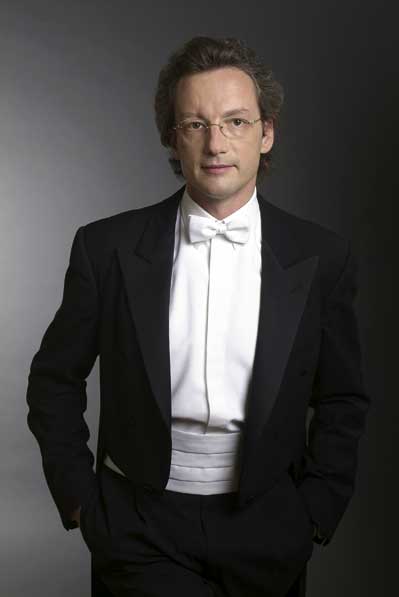
Franz Welser-Möst will conduct three of the Cleveland Orchestra's four Arsht Center programs this season in Miami.
Among the highlights of last season’s Cleveland performances was a taut, concentrated account of Shostakovich’s Symphony No. 6, led by Welser-Möst. This season he will lead the orchestra in another of Shostakovich’s dark orchestral works, the Symphony No. 10 (Jan. 25-26). Paired with the Shostakovich will be the Beethoven Violin Concerto with soloist Joshua Bell. Another major soloist will partner with the orchestra for the next concerts, as Garrick Ohlsson takes the stage to perform Beethoven’s Piano Concerto No. 4 (Feb. 1-2), in a concert that will also include Berlioz’s Symphonie fantastique.
For the final concert (March 15-16), the orchestra’s principal guest conductor, Giancarlo Guerrero, will lead a performance of Beethoven’s Ninth Symphony, with the Master Chorale of South Florida, Master Chorale of Tampa Bay, soprano Nicole Cabell, mezzo-soprano Elizabeth DeShong, tenor Garrett Sorenson and bass Raymond Aceto. DeShong will also perform the Neruda Songs by the late American composer Peter Lieberson.
Choral music
The Miami choir Seraphic Fire, coming off a season that included a tremendous performance of Bach’s Mass in B Minor and two Grammy nominations, will again showcase its immense range, with concerts spanning 1,000 years of music, from Gregorian Chant to opera to early American hymns (www.seraphicfire.org).
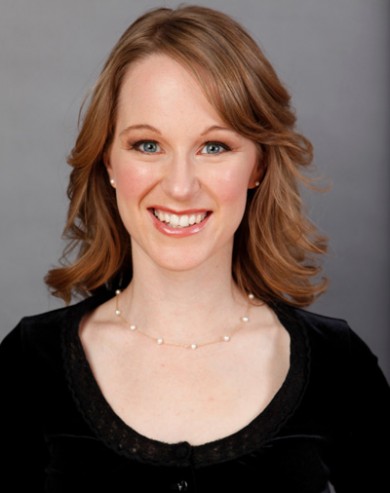
Soprano Kathyrn Mueller will perform Vivaldi opera arias March 20-24 with Seraphic Fire.
The choir will open its eight-program season with a concert entitled “Simple Gifts,” consisting of American music from the humble hymns of the Shaker tradition to the modern works of Copland and Barber (Oct. 17-21). Having taken a break on its annual Christmas performances of Handel’s Messiah, the choir will resume the seasonal favorite this season (Dec. 21-23). There will be an entire concert of Gregorian chant, in which the choir will bring to life the musical world of medieval Europe (Jan. 16-20). Seraphic Fire will revive its 2007 staging of Purcell’s late 17th century opera Dido and Aeneas, giving audiences the rare chance to hear an opera in English (that was meant to be in English) and featuring the famous aria “When I am Laid in Earth” (Feb. 22-24). The choir will show a different side of the composer Antonio Vivaldi, a composer generally heard via the same four violin concertos, in a concert program called “Vivaldi & the Soprano.” Featuring Seraphic Fire soprano Kathryn Mueller, whose solos have long stood out even in this talented group of singers, the concert will offer virtuoso works for female voice that the composer produced during his years as music director of a Venetian girls’ orphanage (March 20-24). The final concert program will be a mix of well-known choral works called “Cathedral Classics,” in which the audience will get a chance to select some of the works performed (May 8-12).
The Master Chorale of South Florida enters its 10th anniversary season in a state of uncertainty, now that artistic director Karen Kennedy has announced she’s quitting after just one year (www.masterchoraleofsouthflorida.com). Kennedy will continue to lead the choir this season, as the board looks for a replacement. This season the choir will emphasize collaborations with various orchestras rather than free-standing concerts of its own. They will appear at the end of Festival Miami to perform Orff’s Carmina Burana with the Frost Symphony Orchestra (Nov. 2 and 4). They sing twice with the Cleveland Orchestra in two of the world’s greatest symphonic works, Mahler’s Symphony No. 3 and Beethoven’s Symphony No. 9, and will close the season with the contemporary English composer John Rutter’s Mass for the Children, performed with Symphony of the Americas (April 19, 20 and 21).
Festival Miami
Festival Miami, the jazz, Latin and classical series at the University of Miami’s Frost School of Music, marks the traditional opening of the concert season (www.festivalmiami.com). This year the series will feature the celebrated American pianist, conductor and teacher Leon Fleisher. After a free master class and talk Oct. 2, he will lead the Frost Symphony Orchestra in Rachmaninoff’s Symphony No. 2 and Beethoven’s Coriolan Overture (Oct. 4).
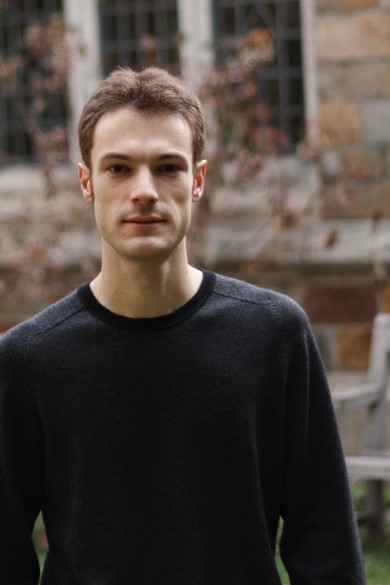
Composer Paul Dooley's "Point Blank" will receive its world premiere by the Frost Wind Ensemble October 7 at Festival Miami.
The Frost Wind Ensemble will perform two world premieres: The Percussion Concerto by the Pulitzer Prize-winning American composer Jennifer Higdon, with Svet Stoyanov handling the solo part, and Point Blank, by the young American composer Paul Dooley (Oct. 7). Both composers will participate in a pre-concert question-and-answer session.
Frost piano professor Santiago Rodriguez will perform a recital of Chopin, Rachmaninoff, Albeniz and others (Oct. 12). The soprano Ana María Martínez will sing a recital, co-presented by Judy Drucker’s Great Artists series (Oct. 13). Frost bassoon professor Luciano Magnanini, who retires in May, will lead a program of bassoon and chamber works for wind instruments and piano (Oct. 14). Festival Miami will close Nov. 4 with a performance at the Arsht Center for the Performing Arts of Orff’s Carmina Burana, with Karen Kennedy leading the Master Chorale of South Florida, Florida’s Singing Sons Boychoir, the Frost Chorale and the Frost Symphony Orchestra.
Chamber Music
It will be a festival of pianists this season on the Friends of Chamber Music of Miami series (www.miamichambermusic.org). Of the nine concerts scheduled this season, five are piano recitals. Among the pianists featured are Anton Kuerti, performing an all-Beethoven program as he did last year (Oct. 11), Nikolai Lugansky (Oct. 25), Cyprien Katsaris (Feb. 6), and the British pianist Benjamin Grosvenor (Feb. 19). Only one pianist is new to the series, the young Polish virtuoso Rafal Blechacz, who is being presented in conjunction with the Chopin Foundation of the United States (May 7). In addition to the pianists, the series brings back several of its well-known ensembles: the Kalichstein Laredo Robinson Trio (Jan. 9), the Ehnes Quartet (March 3), and the Tokyo String Quartet in its farewell tour (Jan. 15).
If piano recitals are common occurrences this season, vocal recitals are not. The Friends of Chamber Music series will present one performer, Ryan Speedo Green, a young bass-baritone who rose from a drug-ridden neighborhood in Virginia to win last year’s Metropolitan Opera National Council Auditions, the most prestigious vocal competition in the United States. He will perform May 15 with the pianist Ken Noda.
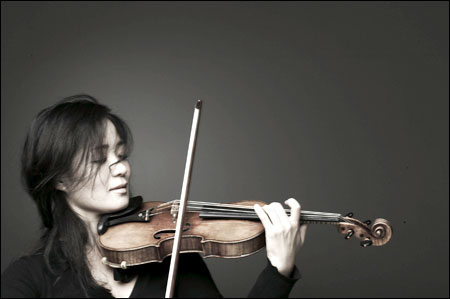
Violinist Kim Chee-Yun performs a recital February 17 for Sunday Afternoons of Music.
A more varied mix of performers will appear on the Sunday Afternoons of Music series (www.sundaymusicals.org). Among the highlights will be a return of the fast-rising soprano from Fort Lauderdale, Nadine Sierra, an Adler Fellow with the San Francisco Opera who provided a memorable turn as Gilda in FGO’s Rigoletto last season. She will perform Jan. 13 with her sister Melanie, also a soprano. Among the other concerts are performances by the trio of pianist Alon Goldstein, violinist Soovin Kim and cellist Amit Peled (Jan. 26), violinist Chee-Yun Kim (Feb. 17), violinist Lara St. John (March 10) and pianist Alan Gampel (March 16).
Performing Arts Centers
The strongest series will once again be at the Kravis Center for the Performing Arts in West Palm Beach, which will present some unusual and intriguing ensembles along with the A-list musicians preferred by the big halls (www.kravis.org). The season opens with the National Symphony Orchestra of Cuba, making its first tour of the United States since its founding in 1960, apparently choosing West Palm Beach to avoid the potential political controversy of appearing in Miami-Dade County. The orchestra will perform a mix of Cuban music, American music and European classics (Nov. 10-11). Another notable visitor will be the China National Symphony Orchestra, representing a nation bidding for a big part of classical music’s future. The orchestra will perform the Butterfly Lovers Concerto by Chen Gang and He Zhanhao, the first movement of the contemporary Chinese composer Xia Guan’s Earth Requiem and Strauss’s Ein Heldenleben (Jan. 22).
Other Kravis concerts worth catching include performances by the Philadelphia Orchestra with the pianist André Watts in Beethoven’s Piano Concerto No. 5 (Feb. 5) and Grieg’s Piano Concerto (Feb. 6) and the Pittsburgh Symphony Orchestra with pianist Denis Matsuev in Rachmaninoff’s Piano Concerto No. 2 and Tchaikovsky’s Symphony No. 5 (Feb. 19). The Russian National Orchestra will draw on its nation’s rich musical heritage to present two programs of Tchaikovsky, Rimsky-Korsakov, Rachmaninoff and Prokofiev, including the Tchaikovsky Piano Concerto No. 1 with pianist Barry Douglas (Feb. 27) and Rachmaninoff’s Rhapsody on a Theme of Paganini and Prokofiev Symphony No. 5 (Feb. 28). The Academy of St. Martin in the Fields will perform Haydn’s Farewell Symphony, Haydn’s Cello Concerto No. 1 and Bach’s Piano Concerto No. 1 in D Minor (March 19). The series will conclude with a recital by the pianist Evgeny Kissin performing Haydn, Beethoven, Schubert and Liszt (April 16).
Among the highlights of the Arsht Center’s (www.arshtcenter.org) offerings are Bach’s Goldberg Variations performed by the American pianist Simone Dinnerstein, who made an acclaimed 2007 recording of that work (Jan. 13). Two of America’s best orchestras will perform. The Philadelphia Orchestra under Rafael Frühbeck de Burgos, with pianist André Watts, will perform Beethoven’s Piano Concerto No. 5 (Feb. 7). And the Pittsburgh Symphony Orchestra with pianist Denis Matsuev will perform Rachmaninoff’s Piano Concerto No. 2 (Feb. 21). The Cleveland Orchestra’s four-program series also takes place at the Arsht Center.
The Broward Center for the Performing Arts (www.browardcenter.org) will offer just four concerts but all of them with world-class performers. These include the pianist Murray Perahia (Oct. 29), violinist Itzhak Perlman (Jan. 7), the Russian National Orchestra (Feb. 26) and the Academy of St. Martin in the Fields (March 18).
For those within a reasonable drive of Stuart, several prominent performers are coming to that city’s Lyric Theatre (www.lyrictheatre.com), including the Canadian Brass (Jan. 9), the flutist James Galway (March 12), pianist and Van Cliburn gold medal winner Nobuyuki Tsujii (March 23) and violinist Lara St. John (March 27).
South Florida orchestras
The Miami Symphony Orchestra (www.miamisymphony.org) will cram a surprising variety of the classic, the daring and the popular into its nine concert programs. The season will open with a bang, with the first concert starting with Rachmaninoff’s floor-shaking Piano Concerto No. 3 with soloist Konstantin Soukhovetski (Oct. 21). At its next concert, the orchestra will perform the early-20th-century Mexican composer Silvestre Revueltas’s 8 x Radio, Schoenberg’s Chamber Symphony, Mozart’s Divertimento in D Major and Haydn’s Cello Concerto No. 1. The orchestra will offer the rare chance to hear a (sort of) harp concerto, with Rodrigo’s Concierto de Aranjuez, arranged for harp with soloist Kristi Shade, along with Mendelssohn’s Italian Symphony and Ravel’s Mother Goose Suite (March 2-3). There will be pops concerts devoted to the music of Hollywood (Dec. 15-16) and Vienna (Jan. 20). The season will conclude May 3 with an all-Brahms concert, with Phillipe Entremont performing the composer’s Piano Concerto No. 1 and music director Eduardo Marturet leading the orchestra in the Symphony No. 4.
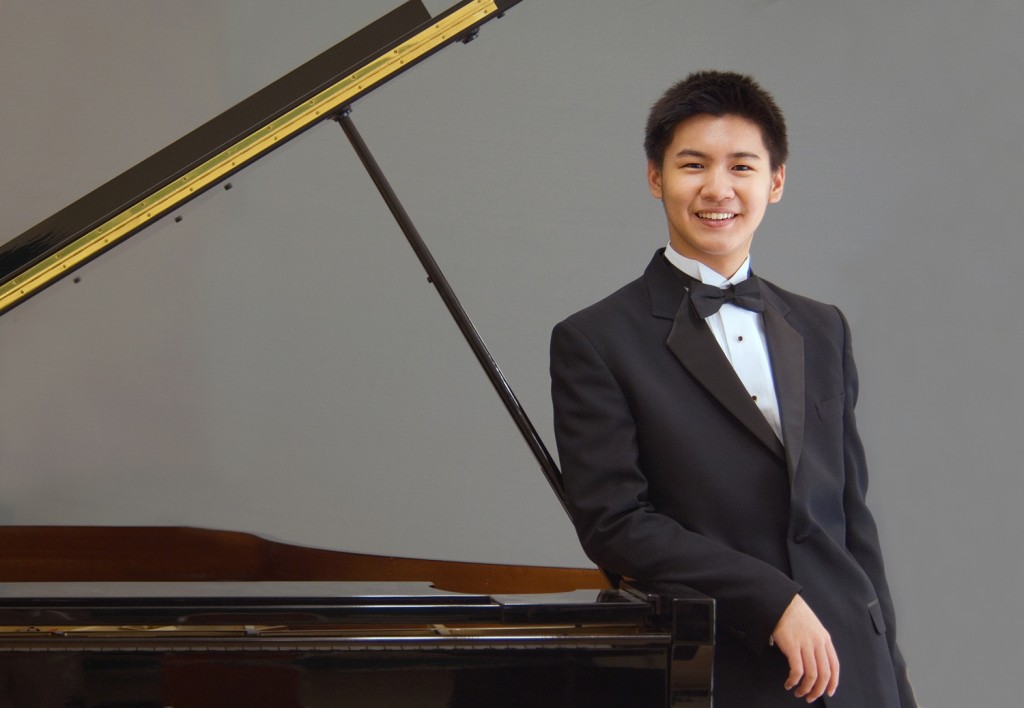
Conrad Tao will perform the complete Beethoven piano concertos April 15 and 16 with the Symphony of the Americas
The programs of the Boca Raton Symphonia (www.bocasymphonia.org) contain some interesting works that are rarely heard in South Florida. These include Walter Piston’s Sinfonietta (Dec. 2), the Shostakovich Cello Concerto No. 1 with soloist Julian Schwarz (Jan. 27), Saint-Saëns Symphony No. 2 in A Minor (Feb. 24) and Mozart Flute Concerto No. 1 with soloist Jennifer Grim (March 24).
Among the highlights of the Symphony of the Americas (www.symphonyoftheamericas.org) series will be two concerts by the brilliant young pianist Conrad Tao, a former prodigy who has since turned 18, appeared with major orchestras and received glowing reviews. Tao, a student at Juilliard, gave a terrific performance of Rachmaninoff’s Piano Concerto No. 2 last season with Symphony of the Americas, showing himself to be a deeply musical performer and not just a master of keyboard acrobatics (although he’s that too). This season he will perform all five Beethoven piano concertos with the orchestra over two days (April 15-16). Other highlights of the Symphony of the Americas season include an evening of zarzuela (Oct. 16), a concert of vocal works called “Opera to Broadway” (Feb. 26) and a concert of pops and patriotic works with the Gay Men’s Chorus of South Florida (March 19).
Posted in Articles
Leave a Comment
Tue Sep 4, 2012
at 5:40 pm
No Comments
